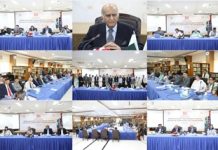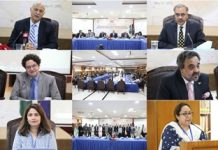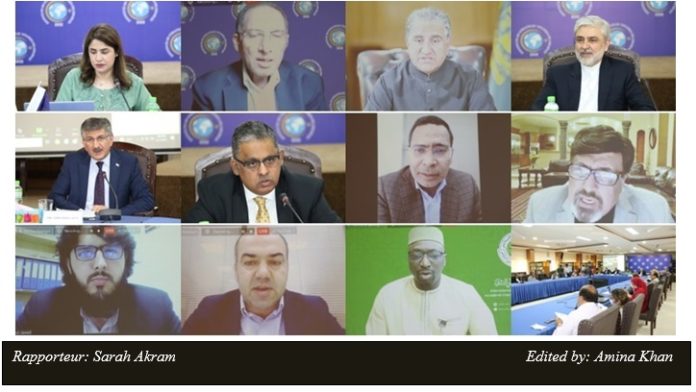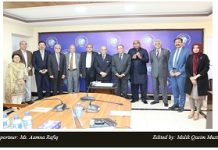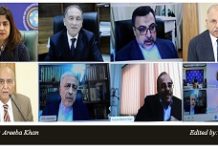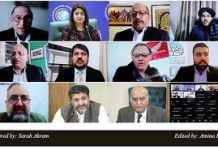The Centre for Afghanistan, Middle East and Africa (CAMEA) at the Institute of Strategic Studies (ISSI) organized a roundtable on “OIC through the Decades: Challenges and Opportunities Ahead”, in collaboration with the Middle East Monitor (MEMO). The roundtable was moderated by Ms. Amina Khan, Director CAMEA. Director General ISSI, Ambassador Aizaz Ahmed Chaudhry gave the welcome remarks. Speakers on the occasion included Shah Mahmood Qureshi, Foreign Minister of Pakistan, Dr. Daud Abdullah, Director Middle East Monitor (MEMO) UK, Professor Dayto Dr. Kohtou Moustapha Sano, Secretary General International Islamic Fiqah Academy Jeddah, Ambassador Rizwan Saeed Sheikh,Pakistan’s Permanent Representative to the OIC, Mr. Mustapha El Khalfi,Moroccan Politician (Justice and Development Party), H.E. Hamid Abbas Lafta, Ambassador of Iraq to Pakistan, Mr Khalid Pashtoon,Former Member of Afghanistan’s Parliament, H. E. Mr. Seyed Mohammad Ali Hosseini, Ambassador of the Islamic Republic of Iran in Pakistan, Dr. Veysel Kurt, Associate Prof. Veysel Kurt. Istanbul Medeniyet University and Mr. Bahlol Javed, Research Fellow for Center for Strategic Studies, MoFA, Kabul.
While giving her remarks, Ms. Amina Khan, stated that more than a half a century ago, the Organization of Islamic Cooperation (OIC) was established as the collective voice of the Muslim world. Its objective has always been to ensure and safeguard Muslim economic and political interests and lessen all challenges faced by the Muslim Ummah. Pakistan was one of the founding members of the OIC and it continues to enjoy a respectful status within the organization. In 1985, Syed Sharif-ud-Din Pirzada, a renowned Pakistani lawyer, was unanimously elected as Secretary General of the OIC. She further said that as momentous changes have swept across the Muslim world over the past decade, the OIC has emerged as an important voice defending the dignity and rights of its members. Palestine and Kashmir are the two critical issues of the Islamic World. Over the years, Pakistan has been closely engaged in supporting cooperation amongst member states and advocating for equitable solutions for various issues faced by the Muslim community. Pakistan has presently been very proactive in pursuing a crusade against Islamophobia, and as a result of Pakistan’s efforts, the UNGA has declared March 15 as the international day to combat Islamophobia, she opined. Ms. Khan also said that Pakistan also hosted the 17th extraordinary session of the OIC Council of Foreign Ministers on the situation in Afghanistan during which Pakistan proposed a framework to help solve the ongoing humanitarian crisis, which included the creation of a structure to channel humanitarian as well as financial support to Afghanistan in this time of need.




